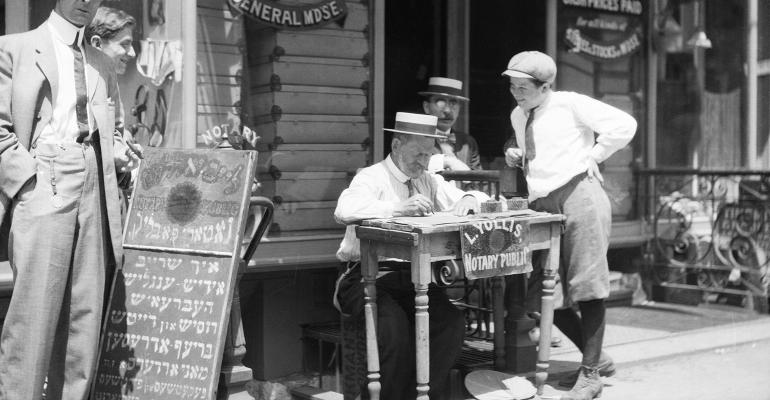The coronavirus pandemic has created a new normal of social distancing and self-isolation. A side effect of this new normal is the inability for clients and advisors to come together in the same room to discuss, plan and execute on their estate planning objectives. Through modern technology, these discussions can still occur in virtual spaces, but the implementation of a plan during this time of social distancing has been proving difficult. With depressed asset values and historically low interest rates, now’s an ideal time for planning that reduces estate, gift and generation-skipping transfer (GST) tax, but how can clients sign documents that require witnesses or a notary?
Changes in New York
If you live in a state like New York, the law requires a trust to be executed by the trust creator in the presence of a notary, or in the presence of two disinterested witnesses (individuals who won’t benefit from the planning). Most clients are currently isolated along with the very people they intend to benefit, making it difficult to find disinterested witnesses. Equally difficult may be the ability to find someone licensed as a notary public to meet with the trust creator to acknowledge the document in a timely fashion.
It’s now possible to execute trusts (both irrevocable and revocable trusts) in New York through the use of video notary acknowledgement. Pursuant to Executive Order No. 202.7 signed by Gov. Andrew Cuomo on March 19, 2020, a notary sitting in New York may take the acknowledgement of a trust creator who’s also located in New York through the use of video communication technology.
Other Options
An alternate solution is to ask a third-party individual, bank or trust company who has access to witnesses or a notary, or one who resides or operates in a state whose laws don’t require these formalities, to create the trust. For instance, a resident of New Jersey or Connecticut or a trust company in Nevada can create a trust without witnesses or a notary present.
A third-party can create a “declaration of trust” with terms dictated by the client for the benefit of the client’s heirs, as if the client were planning to execute the document herself. This is a noncontroversial method of trust creation but one not often utilized except in unique circumstances.
The income, gift, estate and GST tax laws all treat the person or persons who contributed property to the trust as the trust grantor, even if that person never signed the trust document. For example, if a New Jersey resident creates the trust and the trust property is contributed solely by a New York resident, the New York resident will be the deemed grantor for income tax purposes and the deemed transferor for gift, estate and GST tax purposes.
Once the trust is created, the client can work with her advisors to assist with asset transfers and other funding requirements, which typically can occur remotely with digital authorizations. Transferring real property can be more difficult, but a New York resident can now execute deeds remotely with the benefit of video notarization under the order discussed above.
Opportunities Still Exist
While these are unsettling times, depressed asset values and low interest rates present opportunities for clients to eliminate estate taxes. Clients should be encouraged to reach out to their legal advisors to discuss what options might exist for implementing beneficial estate planning strategies during this period of social distancing.





